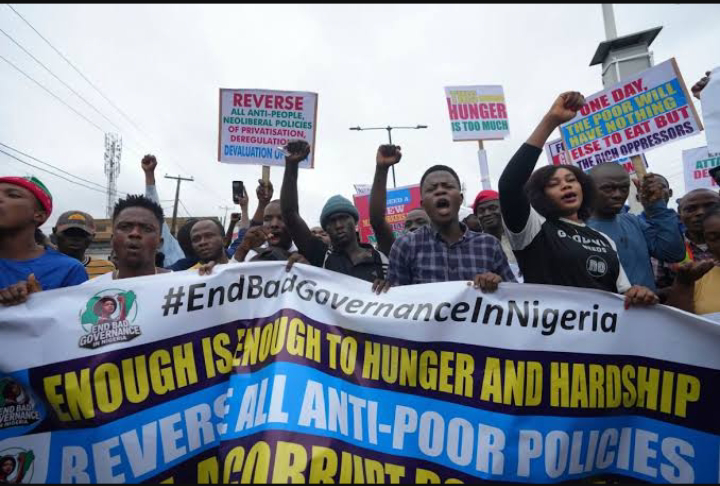Nigerian Tweeps Demand Accountability for Alleged Foreign Reserve Collateralization
In the latest revelation surrounding Nigeria's financial landscape, citizens have taken to social media to demand answers and accountability. A recent report by SaharaReporters has shed light on a significant issue that has sparked outrage among Nigerian Twitter users. The report suggests that the Central Bank of Nigeria (CBN) has disclosed owing a substantial debt to foreign banks and US-based corporations, including The Goldman Sachs Group and JPMorgan Chase & Co. The staggering amount of $13.8 billion, equivalent to approximately N10.6 trillion, has raised concerns over the management of the country's foreign reserves.
The revelation has led to a chorus of voices calling for swift action, including the potential imprisonment of former President Muhammadu Buhari and Godwin Emefiele, the suspended governor of the Central Bank of Nigeria. Allegations are swirling that the foreign reserves of the nation were utilized as collateral for loans, leading to questions about transparency, fiscal responsibility, and the consequences of such actions.
Intriguingly, the reactions from citizens on social media platform X (formerly known as Twitter) underscore the gravity of the situation. These calls for accountability are not only centered around the financial mismanagement but also point to broader issues within the country's governance and economic structures.
The saga takes an even more complex turn as experts analyze the potential implications. BusinessDay, a prominent news outlet, has raised alarms that the CBN's debt to foreign banks could significantly impact Nigeria's entire foreign reserves, potentially amounting to a staggering 40.7% of its total reserves of $34.1 billion. This revelation has given rise to a sense of distrust regarding Nigeria's financial stability, casting shadows over the nation's current external reserves.
The interviews with financial analysts, industry experts, and concerned citizens shared via verified Twitter accounts provide an unfiltered glimpse into the frustrations and skepticism brewing within the population. Many have voiced their opinions, holding figures such as Prof Yemi Osinbanjo, who headed the National Economic Council during Buhari's regime, accountable for their roles in this unfolding financial controversy.
As Nigerians grapple with this alarming revelation, questions regarding the adequacy of oversight and the implications for the country's economic future come to the forefront. The complexity of the issue, coupled with the genuine concerns of citizens, underscores the need for transparency, accountability, and responsible fiscal management. As discussions unfold online, the demand for answers intensifies, and the nation's economic trajectory hangs in the balance.
Stay tuned as we delve deeper into the implications, potential consequences, and possible resolutions to this multifaceted situation that has captivated the nation's attention and stirred a widespread call for transparency and accountability.



Comments
Post a Comment